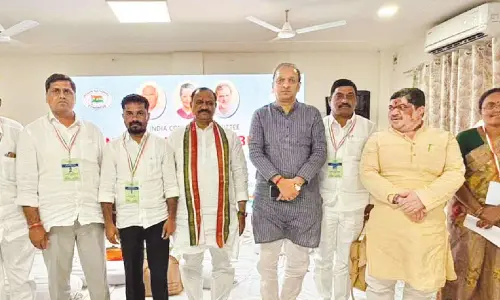India’s norms against dark patterns may hurt ease of doing business: Big Tech coalition
Share :

The Asia Internet Coalition (AIC), that has Meta, Amazon, Twitter, Google and other Big Tech companies as its members, has opposed the draft dark pattern guidelines by the Indian government, saying the move may stagnate the growth of India’s digital economy by having an adverse effect on the ease of doing business.
New Delhi : The Asia Internet Coalition (AIC), that has Meta, Amazon, Twitter, Google and other Big Tech companies as its members, has opposed the draft dark pattern guidelines by the Indian government, saying the move may stagnate the growth of India’s digital economy by having an adverse effect on the ease of doing business.
The government released draft guidelines last month to curb “dark patterns” used by online platforms. These dark patterns mislead people into doing something they did not wish to do, such as paying for items or services they did not intend to buy.
The draft document, released by the Department of Consumer Affairs, was available on the department’s website where people could leave feedback until October 5.
In a letter sent to the Department of Consumer Affairs, the coalition argued that online platforms, and especially online advertisements, are already regulated under various existing laws in India.
“Existing laws in India already account for the regulation and prevention of dark patterns. Any attempt to introduce a separate regulatory framework would cause unnecessary regulatory overlap,” said the AIC.
This overlap will result in divergence across applicable legal frameworks leading to uncertainty in terms of compliance requirements. The combined effect would be a negative impact on the ease of doing business of these digital service providers, the coalition added.
For instance, the online platforms that qualify as online intermediaries are regulated under the Information Technology Act 2000 (IT Act), whereas e-commerce platforms are regulated under the Consumer Protection Act 2019 (CPA).
Additionally, sector-agnostic obligations under the Digital Personal Data Protection Act 2023 (DPDP Act) also apply. “Self-regulation can ensure that the attempt to regulate dark patterns is in harmony with these already existing obligations,” said the coalition.
Under the CPA, dark patterns such as drip pricing, disguised advertisements, false urgency, etc. are already regulated as they constitute unfair trade practices or misleading advertisements.
“The CPA and especially the Misleading Ads Guidelines act as a sector-agnostic regulation and any further regulation would lead to overlap with compliance requirements under it,” the coalition of Big Tech firms argued.
Dark patterns such as interface interference and subscription trap, which concern the privacy rights of consumers, can be tackled through the data processing obligations under the DPDP Act, it added.
“For instance, the data fiduciaries are required to obtain free, informed, and clear consent through an affirmative action for data collection. Therefore, principles of transparency and data minimisation are already an integral part of the obligations under the DPDP Act”.
The upcoming Digital India Act will also be well-equipped to regulate dark patterns on the internet through user safety provisions. It is likely to impose obligations on online platforms and digital services to ensure user safety on the internet.
The coalition urged the Indian government to consider adopting the approach taken by the European Union which is already at an advanced stage of regulating dark patterns.
“The EU already had various principle-based obligations that were imposed on online service providers through directives such as the Unfair Commercial Practices Directive, the Digital Services Act, and the General Data Protection Regulation,” said the Coalition.
In case the government feels a separate regulatory framework is required, “then we suggest that such regulation be sector and medium-agnostic and apply to both offline and online content and advertisements,” the letter read.









